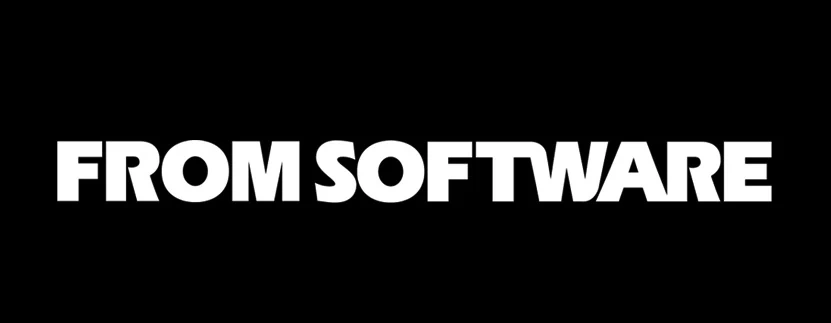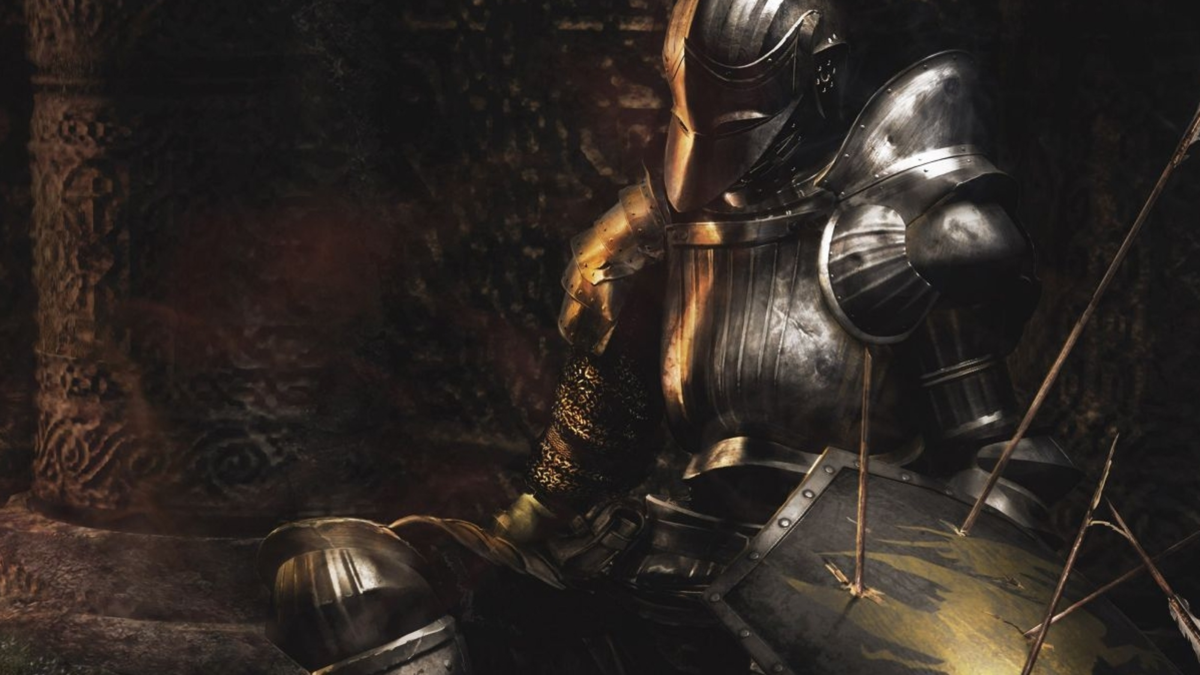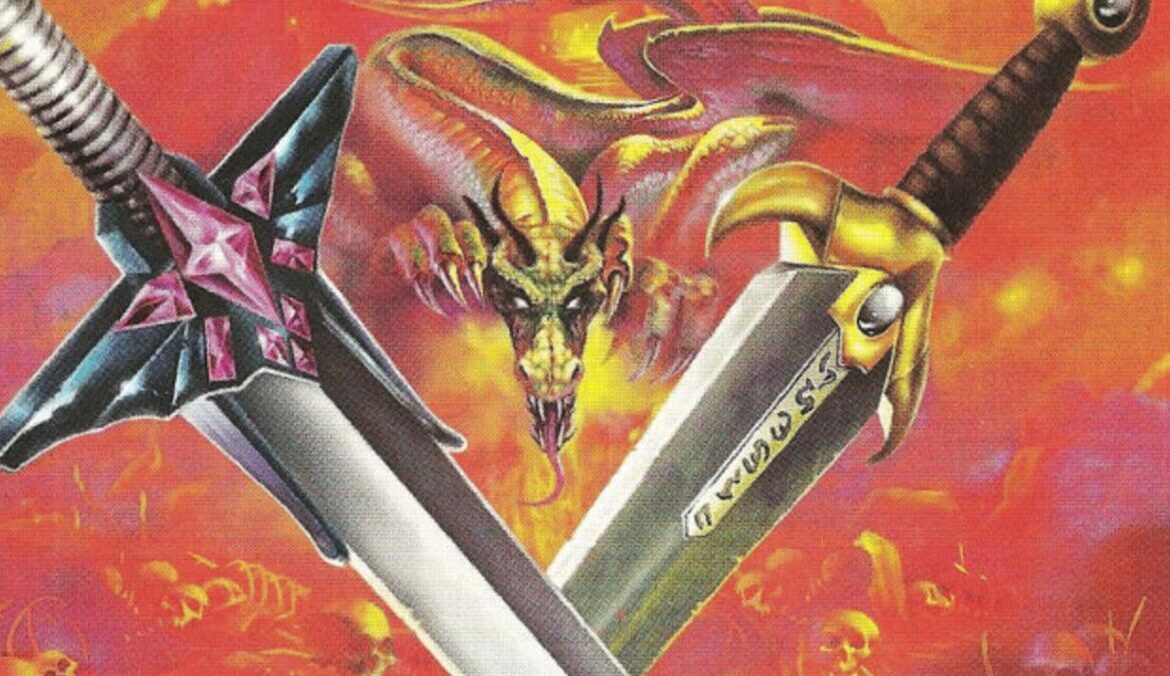Before Hidetaka Miyazaki and crew stormed the gaming industry with the Dark Souls franchise, Sekiro: Shadows Die Twice, and Bloodborne, there was a weird little series that began as a launch title in Japan on Sony’s upstart PlayStation, complete with mind-boggling effects. This game would serve as some of the basis for both Demon’s Souls and even Armored Core — King’s Field, the very first game made by Japanese masochists FromSoftware.
From Spreadsheets to Spells

Prior to the release of King’s Field on the PlayStation, FromSoftware had already been long established as a business software company dealing with spreadsheet and organizational applications in Japan since 1986, originally founded by Naotoshi Zin.
King’s Field was inspired by Wizardry on the Apple-II e in 1983, though it was first conceptualized as a game about robots navigating an underground labyrinth in a 3D perspective. Sound familiar? Well, this wasn’t King’s Field, but some of these ideas would come back in 1996 with another video game on the PlayStation that would get FromSoftware some true notoriety outside of Japan called Armored Core. King’s Field itself would not come out until 1994 alongside the launch of the PlayStation because at the time of conceptualizing the game, the developers viewed PCs as unable to handle the things they wanted to do.
King’s Field, and its sequels, are all fantasy-based, first-person dungeon crawlers where players would move from room to room and engage in melee and ranged combat against some typical fantasy monsters. Scorpions, skeletons, sentient Venus Flytraps, and the occasional dragon — typical fantasy fare. Nothing as outlandish as the Souls franchise’s demons, flesh piles. and freakish monsters were to be seen in these games. Visually, King’s Field was a very straight-laced title that really didn’t dare to be incredibly different in how it looked, rather it stood out by how it played.
King’s Field played it very straight with the kinds of very typical tropes where you would save a kingdom. But as time went on, the series would have more bleak stories that would involve more and more elements Dark Souls players should be very familiar with. Stories of curses, corruption, and decay would go on to shape the central plots of King’s Field and would eventually be revisited in similar fashion with each Souls game in some thematic way. However, the series would be almost the antithesis of Dark Souls’ stories with a more hopeful tone to it all. Characters expressed more interest in saving the kingdom rather than giving up to the apocalypse or making the best of the situation at hand.
King’s Field originally released to middling reviews, and would not be seen in the West until its sequel, King’s Field II (confusingly just called King’s Field), in 1995. The first game garnered a cult following and FromSoftware noticed the quietly growing popularity enough to warrant a sequel. King’s Field III would be released in 1996 in both Japan and North America on the PlayStation, but would be called King’s Field II in the West. The final entry in the series released in 2001 on the PlayStation 2 as King’s Field IV in Japan and King’s Field: The Ancient City in the West.
Despite some reviews giving King’s Field good marks in Japan, mainly from the publication Famitsu regularly grading the series with 30 or even 35 out of 40 points with King’s Field II scoring the highest, the Western reviewers were not as kind. In 2002 with King’s Field: The Ancient City being cited in Game Informer’s April 2002 issue as a game that would “…bore approximately 99.9% of the gamers out there. Primarily because the game is so slow and burdensome.” Later in 2009 with Demon’s Souls, reviewers would still cite the game as being quite niche, but were much less unforgiving on it in reviews, such as Gamers’ Temple review stating it as having a “…throwback to the brutally unforgiving games of my NES childhood.”
Perhaps back in the PlayStation 2 days, people weren’t ready for something so niche and difficult or that Demon’s Souls did so well in learning from what King’s Field did the best and evolving it to a point that even the 2020 remake barely touched what was already perfected all those years before. What can be said is that King’s Field was definitely something different that stood the test of time that would still even be looked back on fondly even today. Souls fan and prominent YouTuber Iron Pineapple even says that: “If you can put up with all the clunkiness and the jank, King’s Field: The Ancient City is probably the best place to start.” Despite clunky mechanics, there are reasons why this game is still talked about to this day.
Learning From the Past

Demon’s Souls would release to much fanfare on the PlayStation 3 in 2009, eight years after the final King’s Field game, but it’s clear FromSoftware would use some of what they learned making King’s Field into forming the basis of the Souls franchise. Hidetaka Miyazaki was also quoted in multiple interviews prior as being a fan of King’s Field and would use some basic elements from the series in developing Demon’s Souls.
Level design such as labyrinthian areas that interconnect and that are full of shortcuts to and from various checkpoints would be a common theme across all of the Souls games, including Bloodborne, Sekiro: Shadows Die Twice, and Elden Ring.
King’s Field’s story delivery was also a major thing to address in Demon’s Souls. While the overall story was able to be comprehended at a basic level, a good bit of it was scattered about in the game via NPCs and some item descriptions. There were never straightforward explanations for what the player had agency over, but some form of it could be put together through some player sleuthing and deductions not told directly to them from a cutscene. King’s Field was the concept brought to the forefront, but Dark Souls would be the first to really execute this style of narration the best.
Combat and storytelling are one thing that have small traces of semblance in a modern FromSoftware title, but their longest-lasting homage can be seen from this franchise – The Moonlight Sword. First seen in King’s Field in 1995, the sword largely functioned as we know it now: A blue and gold or sometimes silver decorative greatsword that flung out a crescent-shaped projectile when swung by the player. This weapon has been seen in nearly every original FromSoftware game in some way since then, even as recently as Armored Core VI: Fires of Rubicon.
Even now King’s Field should be something players could look fondly back on, even if some parts of the game haven’t aged the most gracefully. Compared to the fluid combat of Bloodborne or Sekiro, King’s Field will sometimes feel a little sluggish and stiff with its first person perspective that persisted until its final iteration. It’s an era of FromSoftware’s legacy in gaming that can be missed in favor of some of their other games from years gone by, but Souls players should experience these dungeon crawlers to see just how much carried over from this storied franchise even up to now. From humble beginnings, something monumental can be born.
Though the chances of a new King’s Field may not be a decision to be made by current FromSoftware staff. In an interview from 2016, Hidetaka Miyazaki stated that King’s Field and Dark Souls “…are two separate entities.” He expresses his views that the two games as existing with unique core concepts apart from each other and yields the idea of a new King’s Field up to original creator Naotoshi Jin if he would be willing to revive the series. While it’s certainly true that King’s Field is leagues apart from Dark Souls, you can clearly see where the influence still shines through.
Return to the Field?

King’s Field may seem archaic by today’s standards, with its rudimentary combat and largely stiff feel, but the magic of the series comes through in its clever level design that persists through until today. With the sudden return of retro dungeon crawlers and gamers more able to stomach a complex RPG such as King’s Field, there could be room for a new entry in the series or something like it that could come to modern consoles. Of course there would be a lot of modernization, like much more feedback visually and audibly in combat, dialogue, and other touch ups to bring the series up to something palatable by a larger audience, but the first-person perspective would set it apart as something truly different by FromSoftware’s standard.
FromSoftware is largely always looking for new ways to spin the Souls formula with what they’ve done with Souls franchise spinoffs like Bloodborne, Sekiro: Shadows Die Twice, and Elden Ring that take the same base template of the genre and put a spin on it. A new King’s Field would be much more aligned to a classic Dark Souls type of approach, but the shift from third to first person would be a unique way to put players in a new situation they’re not used to. Bloodborne was a success because it made players completely un-learn their methods from Dark Souls, and a new King’s Field would be another way to put players through a loop but still offering something with a familiar air about it if the combat is built right. Resource management and economy of items would be key to making a new King’s Field a real hit, mainly due to how eventually in some Souls games you can out-gear certain encounters.
Cruelty towards the player would be something ideal to challenge the most hardened adventurers, things like lack of healing item refills, or long times between checkpoints would be ways to up the challenge. A new King’s Field could be a welcome addition to FromSoftware’s catalog if people are willing to give it a shot. However, with the overwhelming popularity of the Souls format, there is very little room for something as niche as a new King’s Field to be as successful on a viral level as Dark Souls would be for the gaming world. The grandfather of Dark Souls made a mark on the world, but its quirks may not be suitable for everyone as much as the other games in FromSoftware’s repertoire have been since then.
READ NEXT: How the Sega Dreamcast Failed
Some of the coverage you find on Cultured Vultures contains affiliate links, which provide us with small commissions based on purchases made from visiting our site.

